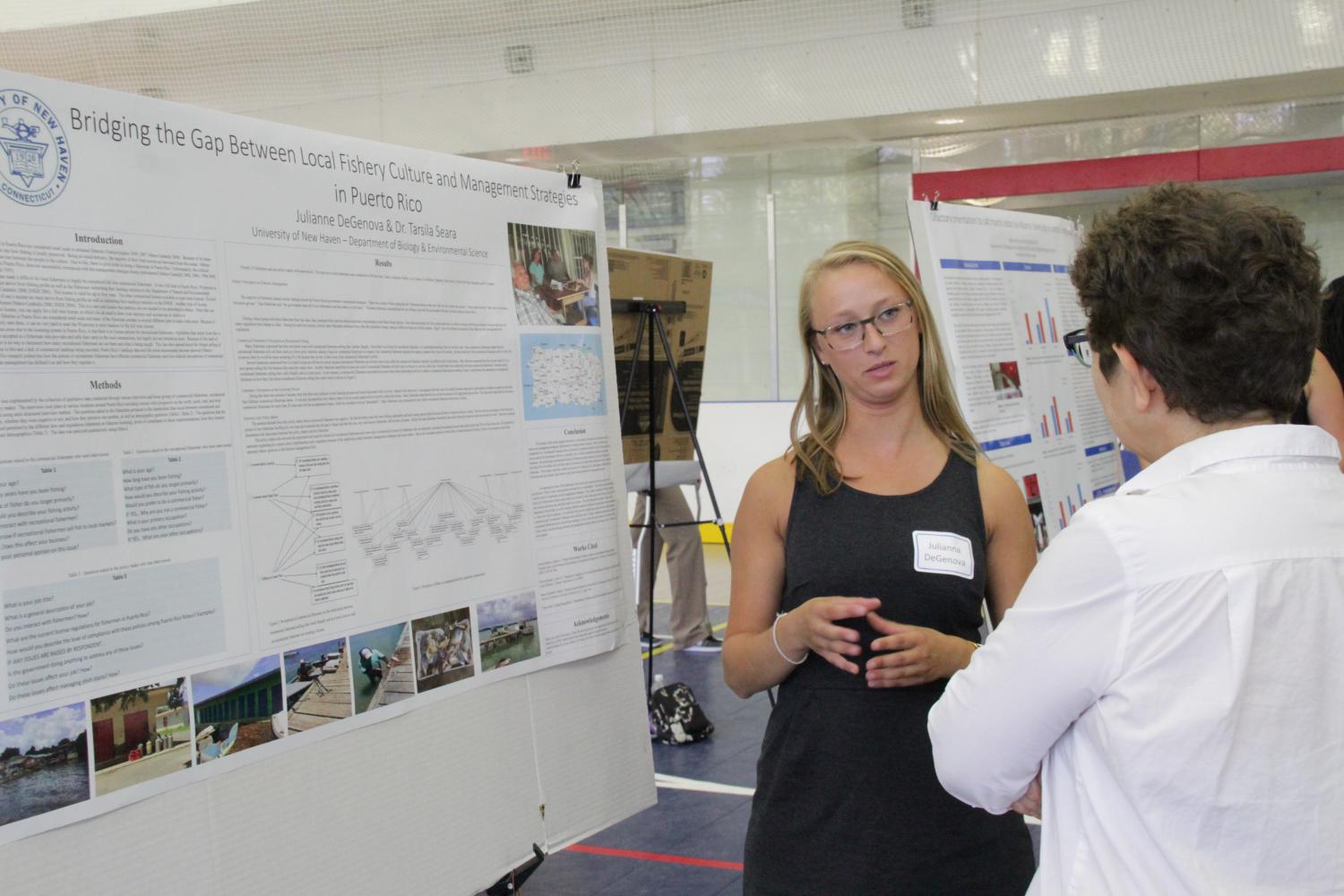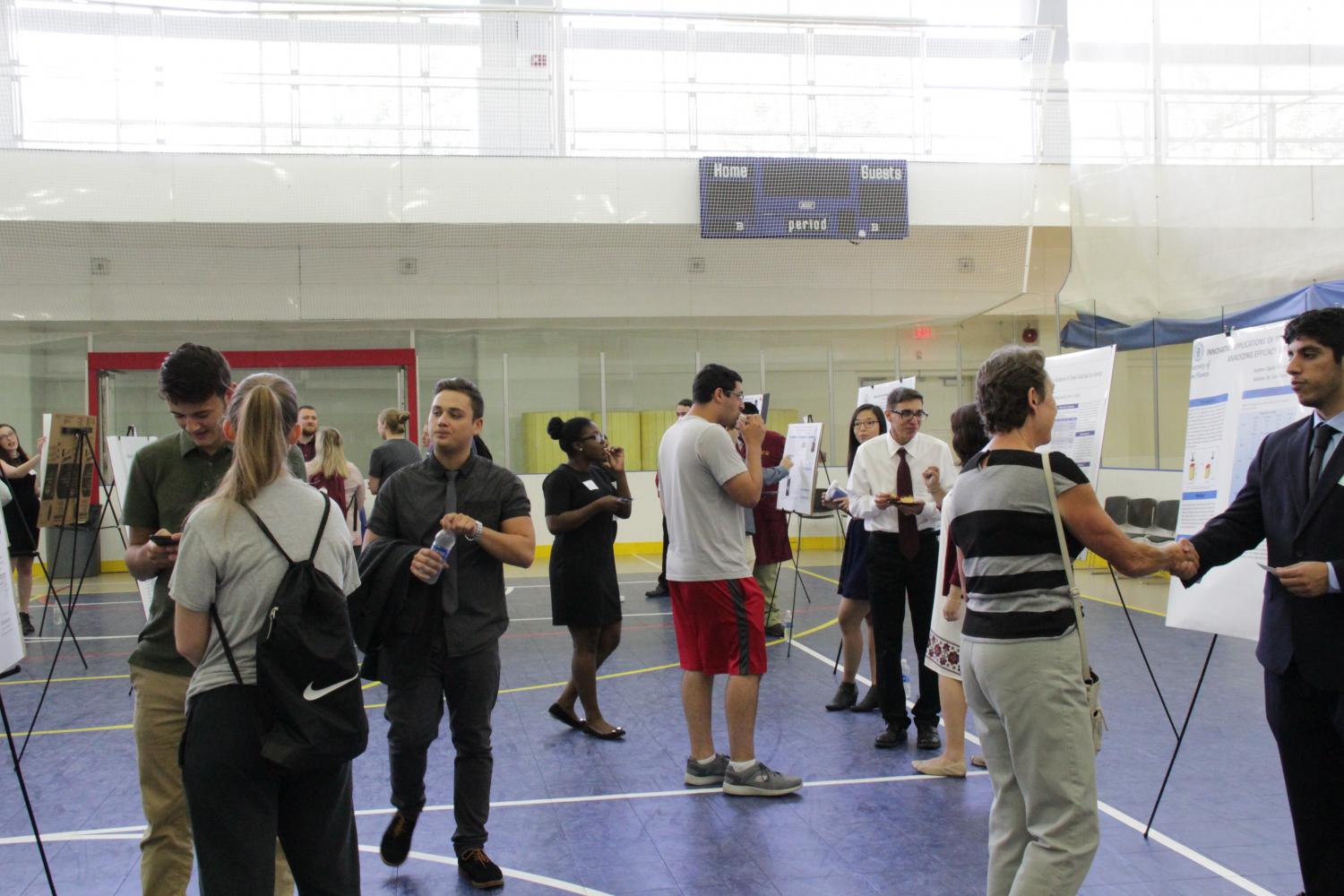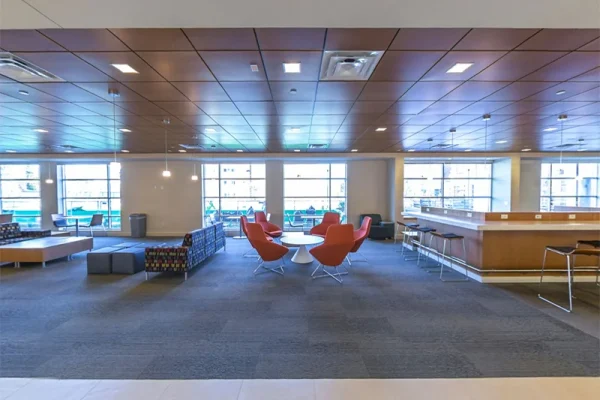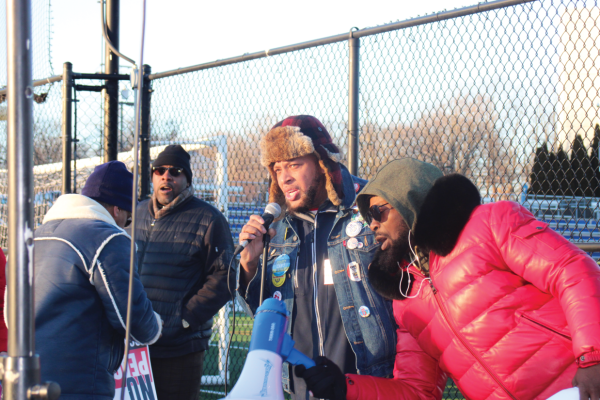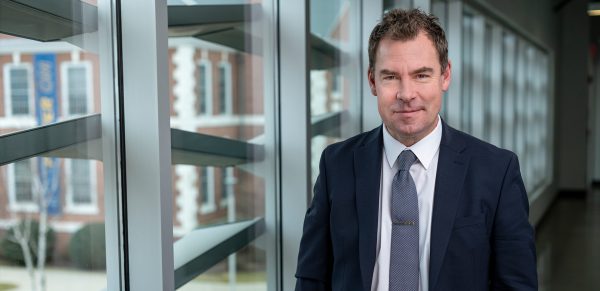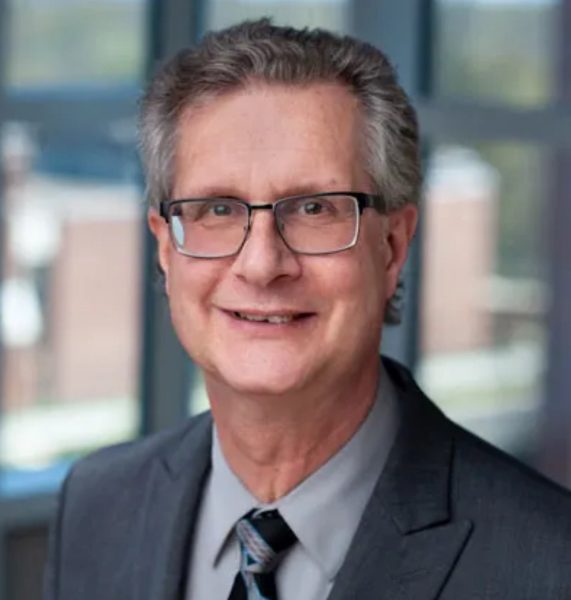Students Show Off SURF Research Results
Each spring semester, students apply to the Summer Undergraduate Research Fellowship, or SURF. The program funds research projects that students create on their own. Student researchers are then able to test, collect, and analyze their findings throughout the summer under the guidance of a faculty mentor.
Rebekah Stafford, a psychology major, tested to see the retention rate of students at the University of New Haven.
“My favorite part about SURF was being about to carry out a study that was my own idea, with the help of a mentor obviously. SURF showed me that I love to do research,” Stafford said.
Stafford’s survey-based data became challenging when she sent out a survey and only received eight responses. This unexpected challenge made her rethink some aspects of her project. She adjusted and decided to open the survey to all students, not only underclassmen, thus obtaining the results she needed and eventually turning her research into a resounding success.
The SURF program began in 2007 and is now directed by Carol Withers, who has been with the university since 2013. She explained the goals for these selected students were, to gain “research experience, build on classwork, hands-on, and grasp the excitement and challenges that research offers.”
Withers has built up the program since its beginnings. She transformed it from what can be considered an independent study, where there were only 20 students accepted, to “cohorts of student researchers,” where there are nearly 40 participants. It allows them to figure out their own course, brand their work, and build it into their resume.
She said, “It’s exciting for them to present their own work and meet new faculty members in the process.”
It’s true this research can allow its applicants to extend their findings into future projects and gain acknowledgement from those outside of the university. Mark Verrilli, forensic science and biology double major, worked over the summer on DNA transfers. He tested four blood transfers to see the decline in DNA across the board.
He explained, “This could potentially aid in the reconstruction process of a crime scene, providing possible scenarios of how the suspect could have moved around the scene.”
At the end of the summer he applied to the Northeastern Association of Forensic Scientists, NEAFS, and was invited to speak about his work at their convention in late November in Pennsylvania. For his senior capstone, he plans to further his research and “test different substrates to see if the trend is consistent and test different collection methods to maximize DNA yield.”
It’s not merely life sciences students can research. Justin Ortiz, a student at the Lyme Academy College of Fine Arts, spent his summer recreating paintings by the “old masters.” He tested the materials available to the artists during their time and compared them to his recreations using three different artistic methods and materials we have today. He found his greatest challenge was against the clock.
“Time. If there was more time I would have been able to develop the pieces more,” Ortiz said, although he loved having the opportunity to “recreate the old masterpieces.”
The S.U.R.F. program is an excellent opportunity to gain research experience that will set participants apart from others in their field. It will open doors that could lead to more research, better connections, or future job opportunities.

